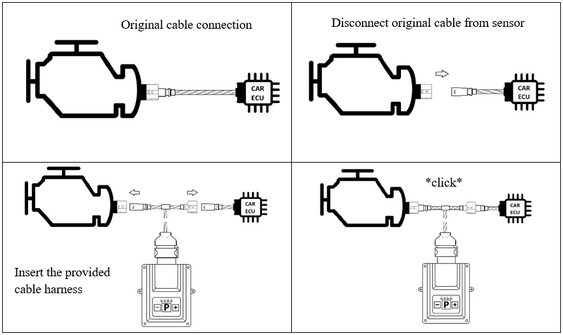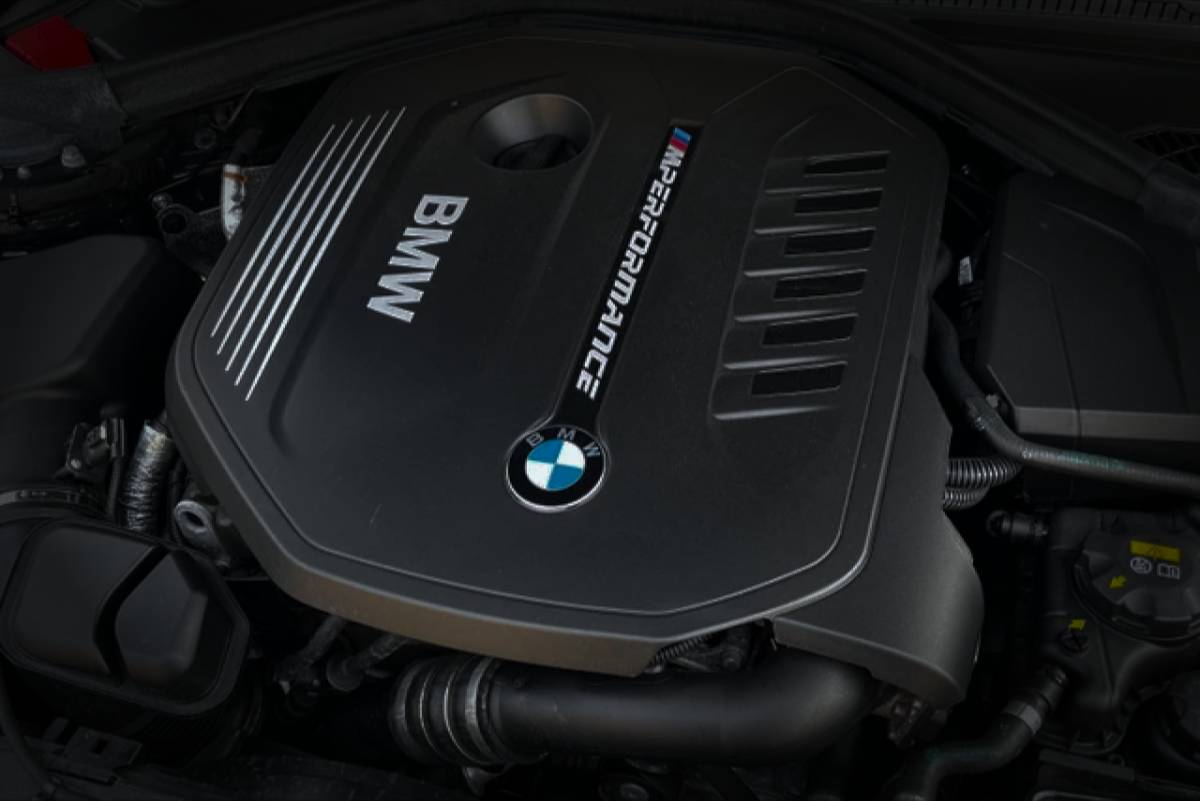Improving Car Performance Through Engine Tuning
Improving car performance through engine tuning involves making adjustments to the engine’s parameters to enhance power and efficiency. By optimizing fuel delivery, ignition timing, and other settings, you can achieve better acceleration, fuel economy, and overall performance for your vehicle.
Engine tuning can bring about significant improvements in horsepower, torque, and fuel efficiency, providing a more exhilarating driving experience. With the advancements in technology, tuning options have expanded beyond traditional methods, allowing for precise adjustments through electronic means. However, it’s important to consider the potential impact on warranty and emissions compliance.
To ensure a safe and effective outcome, consider consulting with a professional tuner or experienced mechanic. By understanding the fundamentals of engine tuning, you can make informed decisions to get the most out of your car’s performance.
The Basics Of Engine Tuning
Engine tuning is a process that involves optimizing the performance of a car’s engine to enhance power, torque, and fuel efficiency. It is a popular practice among car enthusiasts who want to extract the maximum potential from their vehicles. Engine tuning can involve various modifications and adjustments to the engine’s components, such as the fuel and ignition systems, air intake, and exhaust system.
Benefits Of Engine Tuning
When done correctly, engine tuning can offer several benefits for car performance:
- Increased Horsepower: Engine tuning can boost the power output of your car’s engine, giving you a thrilling driving experience and improved acceleration.
- Improved Torque: Tuning your engine can also enhance torque, which is essential for quick overtaking and towing capabilities.
- Enhanced Fuel Efficiency: Optimal engine tuning can lead to improved fuel economy, saving you money at the fuel pump in the long run.
- Better Throttle Response: With engine tuning, you can achieve sharper and more responsive throttle input, resulting in quicker acceleration and better control.
- Customization: Tuning allows you to customize your car’s performance according to your specific preferences, whether it’s for track racing or daily commuting.
Factors That Impact Car Performance
Several factors can influence a car’s performance, and engine tuning plays a crucial role in optimizing these factors:
| Factor | Description |
|---|---|
| Fuel Mixture | The ratio of air to fuel in the engine affects combustion efficiency and power output. Through tuning, the fuel mixture can be adjusted to achieve optimal performance. |
| Ignition Timing | The precise timing of the spark plug’s ignition affects the combustion process. Tuning can help optimize ignition timing for maximum power without risking engine damage. |
| Air Intake | The volume and quality of air entering the engine impact power and efficiency. Upgrading the air intake system, along with tuning, can enhance performance. |
| Exhaust System | The exhaust system influences the expulsion of gases from the engine. Tuning can improve exhaust flow, reducing restrictions and increasing power. |
| Engine Components | The condition and quality of engine components, such as the piston, cylinder head, and valves, can affect performance. Tuning can optimize these components for better efficiency. |
Types Of Engine Tuning
When it comes to enhancing your car’s performance, engine tuning plays a pivotal role. There are several types of engine tuning methods that can significantly improve the power, torque, and overall efficiency of your vehicle. Read on to explore the various types of engine tuning and their benefits.
Chip Tuning
Chip tuning, also known as ECU tuning, involves modifying the software that controls the functioning of your car’s engine. This is typically done by using specialized software to reprogram the electronic control unit (ECU) with new parameters. By optimizing the fuel-air mixture, ignition timing, and other engine settings, chip tuning can unleash additional power and improve fuel economy.
Ecu Remapping
ECU remapping is a type of engine tuning that focuses on reprogramming the ECU to enhance performance. Unlike chip tuning, ECU remapping involves altering the original ECU software to achieve better power delivery and drivability. By customizing the ECU parameters, such as boost pressure and fuel injection timing, ECU remapping can maximize engine performance while maintaining reliability.
Turbo Upgrades
Turbocharging is a popular method for increasing engine power and torque. Turbo upgrades involve installing a larger or more efficient turbocharger to force more air into the engine, allowing for greater combustion and power output. This can be achieved by replacing the factory turbo with a larger, aftermarket unit or by upgrading the existing turbo with performance-enhancing components, such as a larger compressor wheel or a revised turbine housing.
Choosing The Right Tuning Option
When it comes to improving your car’s performance, engine tuning is a popular and effective method. However, choosing the right tuning option is critical for achieving the desired results. Whether you’re looking for increased horsepower, better fuel efficiency, or enhanced drivability, selecting the appropriate tuning method is essential. Let’s explore the key considerations and steps involved in choosing the right tuning option for your vehicle.
Assessing Your Needs
Before delving into any tuning option, assessing your specific needs is crucial. This involves identifying the performance aspects you aim to improve, such as power, torque, or throttle response. Additionally, consider any driving limitations or environmental regulations that may impact the tuning process. By comprehensively assessing your needs, you can align your tuning goals with the most suitable option for your vehicle.
Consulting With Experts
Engaging in discussions with experienced tuning experts is an essential step in the process. Consulting with professionals will provide valuable insights into the available tuning options, their suitability for your vehicle, and the potential performance gains. These experts can also offer guidance on tuning methods that comply with local regulations and ensure optimal engine longevity. By seeking expert advice, you can make an informed decision that aligns with your car’s specific requirements.

Credit: www.facebook.com
Diy Vs. Professional Tuning
Enhance your car’s performance by engine tuning. DIY tuning offers cost-effective options, while professionals ensure optimal results and expertise. Consider your skills and needs for the best approach.
Pros And Cons Of Diy Tuning
When it comes to tuning your car’s engine for improved performance, you have the option of either doing it yourself or seeking professional help. Let’s explore the pros and cons of DIY tuning first.
Benefits Of Professional Tuning
On the other hand, professional tuning offers a range of benefits that can make it a more attractive option for car enthusiasts:
- Expertise and Experience: Professional tuners have extensive knowledge and experience in working with different car models and engines.
- Precise Tuning: They possess the tools and equipment needed to accurately measure and adjust various engine parameters, ensuring optimal performance.
- Customization: Professional tuners can tailor the tuning process to your specific requirements and preferences, enhancing your driving experience.
- Advanced Tuning Techniques: They are well-versed in advanced tuning techniques that can unlock hidden power and efficiency, which may not be accessible through DIY methods.
- Warranty Considerations: Professional tuning done by trusted specialists often comes with warranties, giving you peace of mind regarding the quality of service provided.
Ensuring Safety And Legal Compliance
When it comes to improving car performance through engine tuning, it is vital to prioritize safety and legal compliance. Understanding emission regulations and maintaining the vehicle regularly are essential steps in achieving these goals.
Understanding Emission Regulations
Emission regulations dictate the maximum amount of pollutants a vehicle can release into the environment. Tuning the engine to meet these standards is crucial for environmental health.
Importance Of Regular Maintenance
Regular maintenance ensures that the vehicle operates efficiently and safely, reducing the risk of accidents and breakdowns. It also helps in meeting legal requirements for vehicle performance.

Credit: vector-tuning.com

Credit: www.bimmer-tech.net
Frequently Asked Questions Of Improving Car Performance Through Engine Tuning
Is Engine Tuning Good For Your Car?
Engine tuning can be beneficial for your car. It improves performance and fuel efficiency by optimizing various components. Tuning adjusts air and fuel ratios, ignition timing, and more. However, it’s important to consult with a professional to ensure the tuning is done correctly and doesn’t harm your car’s durability.
How Can I Tune My Engine To Get More Power?
To boost engine power, consider installing a performance air filter, upgrading the exhaust system, and tuning the engine control unit. These adjustments can optimize airflow and fuel delivery, resulting in increased horsepower and torque. Always consult a professional mechanic for proper tuning and modifications.
How Much Horsepower Can You Gain From Engine Tuning?
Engine tuning can increase horsepower by up to 25%. The exact gain depends on the specific modifications made. This process optimizes performance for improved power output.
How Can I Improve My Car’s Engine Performance?
To improve your car’s engine performance, consider regular maintenance, such as replacing air filters, using high-quality fuel and oil, and checking spark plugs. Upgrading ignition systems, installing performance chips, and optimizing airflow can also enhance engine power. Seek professional advice and avoid over-revving or neglecting scheduled services.
Conclusion
Enhancing your car’s performance through engine tuning can provide numerous benefits. By optimizing various aspects of the engine’s performance, such as increasing horsepower and torque, improving fuel efficiency, and enhancing throttle response, you can experience a more exhilarating and efficient driving experience.
However, it is crucial to consult with professionals to ensure that the tuning process is performed correctly and safely. So, don’t hesitate to explore the world of engine tuning and unlock the full potential of your car’s performance.

